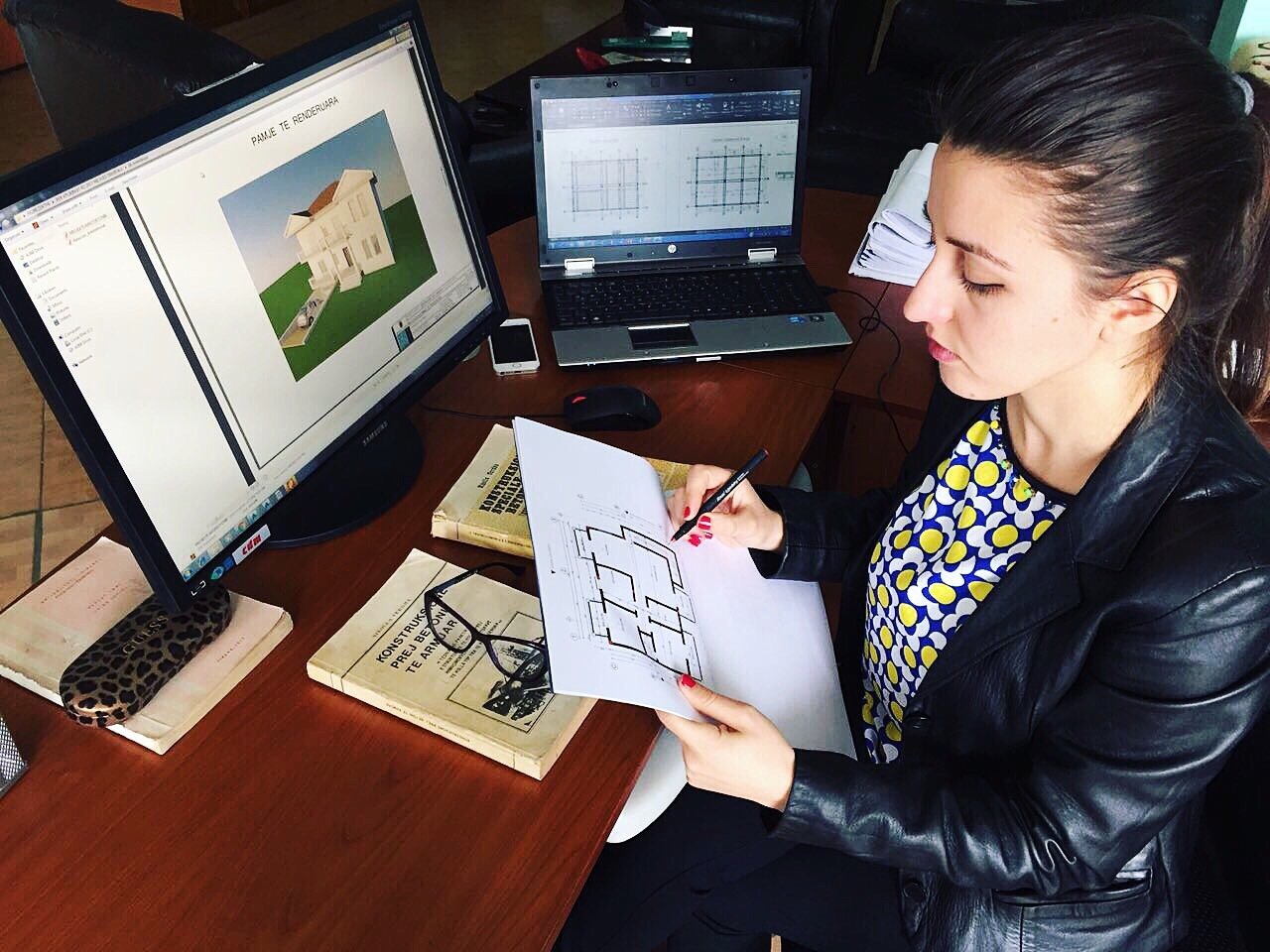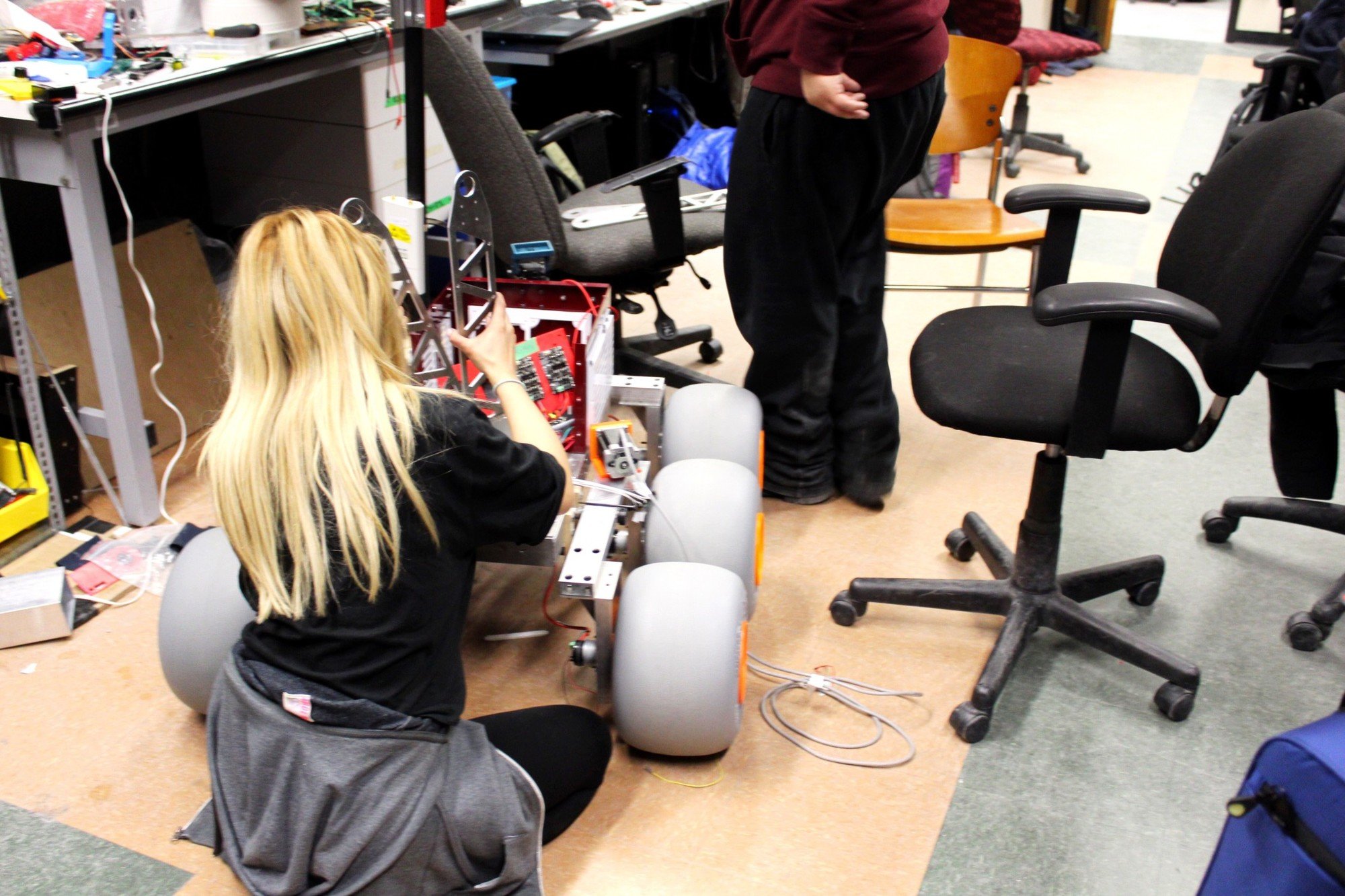
"What do you want to be when you grow up?" Chances are extremely high that every single young person has been asked that question ad nauseam. They get it from their parents, parents' friends, teachers, any adult who is introduced to them and is at a loss for how to make conversation with a kid … but the truth is, it’s a question that can come with some stress, and for girls especially, it can come with a certain amount of baggage. As we grow up, we start to discover that our choices can be influenced by the limits our culture puts on our career goals — and the double standards we are often forced to experience. For instance, women who choose to have both families and careers are often criticized for not doing one or another intensely enough (even though men are rarely, if ever, held to the same standard).
But the fact that we have more to contend with just means we have to work on being stronger, more self-assured, and sometimes, do a little more advance planning and research. These can all turn into serious strengths — and we know that every girl dreaming of her career or young woman working her way toward her future is up for the challenge. One great resource for this is the story "12 Pieces of Work Advice I Would Give My Younger Self," which we would absolutely send to any young woman who is at the beginning of her career path. This is a great article to send to anyone just before starting a new job — or as a first-day note reminding her that we care and are thinking of her. But before that day comes, it's important to prepare young women just to think about what would make them happiest in the long run in terms of a career for themselves. Here, we're going to help girls figure out “what they want to be” by giving them advice that supports their aspirations and encourages them to seek out a career that will be meaningful to them.
Don’t Let Anyone (Or Anything) Limit Those Goals

Dream big. This doesn’t mean having unrealistic goals, but it's important to not let anyone’s thoughts (including our own) or any circumstances put a limit on what we can achieve in life. Want a good example? Frida Kahlo was studying to become a doctor (not a popular pursuit for women in the early 1900s) until an injury forced her to drop out of school. She began painting during her rehabilitation and became one of the most famous artists of the 20th century.
Don’t Let Gender Define Dreams

There aren’t any careers that are “just for boys” or “just for girls,” although our culture (and media) often attempt to make it seem that way. For example, women remain underrepresented in science, technology, engineering, and mathematics (STEM) careers, partly due to the negative stereotypes about girls’ intellectual abilities. But things are changing: Recent statistics show that more women have entered STEM careers over the past 40 years than any other field.
Be Aware That Sexism Can Definitely Arise

We don't know any professional women who haven't experienced some amount of sexism in their careers. But rather than making us afraid to pursue careers that are dominated by men, it's important to recognize the reality of the situation — there are sexist people in nearly any workplace — and that we're going to thrive despite them.
Don't Shun the Arts

For anyone who has a passion for singing, dancing, painting, or acting, know that there are viable career paths connected to these talents. We don't have to think of these pursuits are “just hobbies.” Many people have a successful, fulfilling careers in the arts. Just know that, like any career, it takes lots of hard work and discipline.
Consider Goal Careers With Good Back-Up Plans

People who are drawn to fields that are more volatile — for instance, someone who wants to work in the arts instead of accounting — should consider what would make them happy that's connected to what they love but might not look exactly like it. For instance, it's worth considering whether someone with a passion for acting would also be happy as a stage manager, casting director, or teaching acting classes? One of these could be a good back-up career to pursue simultaneously. Harrison Ford worked as a carpenter on sets before he was discovered — and says he was pretty happy as a carpenter, too.
The Paycheck Isn't Everything

Money shouldn’t be the defining factor in deciding on a career goal. Although earning potential is always a concern when deciding life pursuits, more important questions to ask would be: Would that paycheck come at a high personal cost? What sacrifices would be made in home life and relationships for a higher salary? It’s important to put happiness — and health — at the top of the list.
Consider the Overall Lifestyle

When thinking about a future career, it's important to consider what that career entails. Some people may have a passion for cooking, but don't want to become chefs because they don't want to regularly work on holidays, weekends, and evenings. Some people may have an interest in international relations, but would prefer a job that didn't send them to other countries on a regular basis so they can be closer to friends and family. When thinking about a career, it's a good idea to consider what kind of hours we want to work and what kind of lives outside of the office we want to lead, too.
Take a Good, Hard Look at That 'Dream Job'

Anyone who has a "dream job" in mind should consider what exactly it is that makes this job so appealing. For those who have dreamed of becoming a lawyer, decide whether it’s the prestige and money that's the draw, or if there's a true love for the law and a desire to help people. Likewise, if the fantasy is to become a famous rock star, look at whether it’s the fame and attention, or an overwhelming passion for making music that is the driving force. People can be successful with both, but happiness tends to come from pursuing something with a genuine drive behind it, rather than a need for fame or fortune.
Discover That True Passion

Take a good look at the things and the activities that are genuinely, truly loved, and use them to try to tailor career goals. A love for animals might steer someone toward zoology or veterinary medicine, or an obsession with computer games could lead to a career in game design or programming. Make a list of all the things there's a genuine passion for, and a school counselor can help sort through them and discover a viable career path (and the steps it may take to get there).
Ask for Help

Don’t hesitate to ask for help in defining goals. School counselors, parents, and adult mentors are valuable resources for career advice, and no doubt have faced many of the same issues. Another important resource: people working in interesting fields. Many of the people in these fields would be delighted to meet for coffee to discuss what they do and how they got there (and might just sponsor an internship).
Identify Professional Heroes

Who are the people who have appealing jobs? Look around and decide who is living a life that's enviable. It could be a teacher, a celebrity, a politician, an architect… anyone! Then study their career paths and how they got to where they are. Reach out to them, if possible, and ask questions about what their position entails, how they got started, as well as the ups and downs of their jobs. They can give valuable insight.
Look Beyond the Mainstream

Don’t feel limited to the careers that are familiar. Do some research, and seek out jobs and careers that might not be on anyone’s radar, but might just be the perfect fit. For example, for anyone who loves fashion but doesn't feel called to be a designer, they may consider going into fashion merchandising.
Plenty of People Have More Than One Career

It's always OK to change our mind — and also our career. Don’t feel as if choosing a work path is a life sentence. There’s no rule that says many careers and jobs in a lifetime isn't a good thing. Ellen DeGeneres was a paralegal and an oyster shucker before becoming an actress and a super successful talk-show host. Julia Child was in the OSS, a predecessor to the CIA, before she became one of the most famous chefs in history.
Consider Trying a Variety of Internships

College is a great time to "try on" a number of careers before trying to pursue one. It's worth it to give several summer internships a shot (and even internships during the semester, if there's room in the schedule). This way, multiple career paths can be assessed and examined (as can the work/life balance) before going in.
Consider Volunteer Positions to Get a Sense, Too

Especially for anyone interested in academic or research careers, opportunities may arise to volunteer with a university lab as a research assistant, which can help us determine whether that particular career is right for us.



